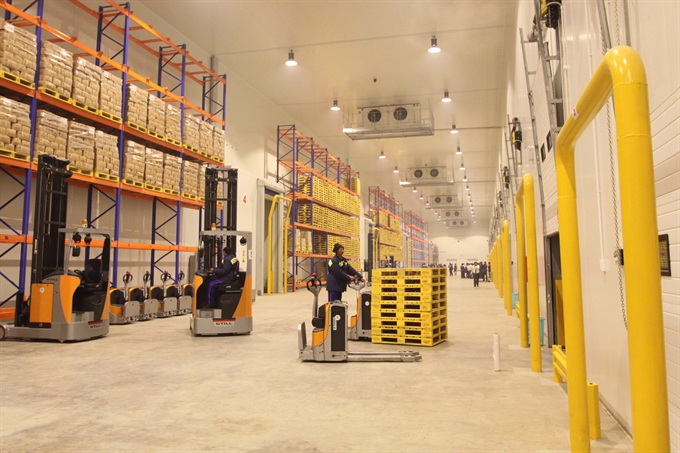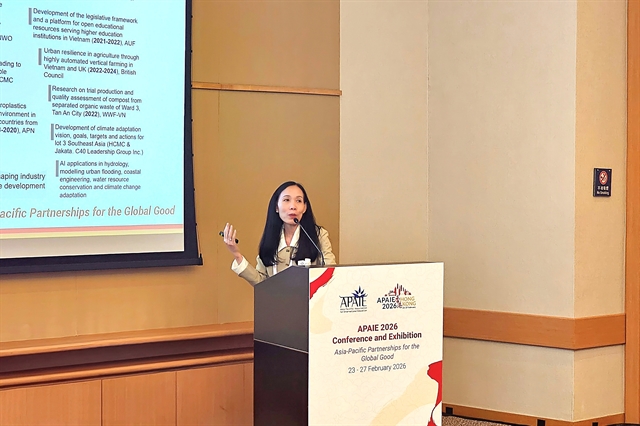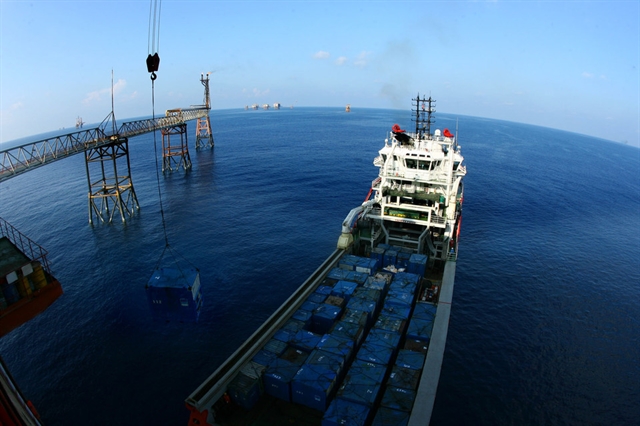 Economy
Economy

The Ministry of Planning and Investment is developing a plan on restructuring the economy by 2020 aiming to renovate the growth model towards improving efficiency and competitiveness of the economy.
 |
| Cold storage facility of Sài Gòn Trading Group in Bình Điền Commercial Centre in HCM City. Việt Nam will focus on boosting the development of key economic sectors. -- VNA/VNS Photo Thanh Vũ |
HÀ NỘI – The Ministry of Planning and Investment is developing a plan on restructuring the economy by 2020 aiming to renovate the growth model towards improving efficiency and competitiveness of the economy.
The ministry said that intensive economic restructuring has become critical for the next five-year period due to rapid international integration and technology advances which demanded the Southeast Asian economy to search for new competitive advantages.
The economic restructuring between 2010 and 2015, the ministry said, revived macro-economic stability and reduced damages caused by inefficient resource allocation, but still generally failed to renovate the growth model and the economic structure.
Under the draft project, three pillars of the economic restructuring by 2020 would be ensuring reasonable economic growth and macro-economic stability, boosting the high-added-value economic sector and developing an independent and dynamic economy to ensure the national security and social order and safety.
Accordingly, inflation would be controlled at 5 per cent per year, the State budget deficit would be cut to between 3.5 per cent and 4 per cent of gross domestic product (GDP), public debts down to below 62 per cent of GDP and foreign currency reserve equivalent to five months of imports. In addition, business environment would be lifted to be equivalent to the ASEAN+3 level (Singapore, Malaysia and Thailand).
Việt Nam would focus on boosting the development of key economic sectors, including agro-forestry-fishery sector, six prioritised service lines such as logistics, business development, tourism, and banking and financial services, in addition to university education and vocational training, and 13 prioritised industries (including electronics, agricultural machinery, shipbuilding, and environment and energy saving, in addition to automobile, chemicals and oil).
Private firms would play a key role in the restructuring of economic sectors, the draft said.
Existing problems included investment-based growth, slow improvements in productivity as well as disappointing results of the restructuring of the public investment, State-owned enterprises, the financial system and the agricultural sector, the ministry pointed out.
The next restructuring phase must focus on building a firm ground for long-term and sustainable growth, which could only be achieved through improving efficiency, productivity and quality to form a more dynamic economic structure with higher competitiveness and larger growth potential, the ministry said in the draft project on the economic restructuring between 2016 and 2020 which is now being raised for comments.
Policies would encourage investments from the private sector and foreign direct investment, the draft said, targeting at least 150 out of 500 the leading global multinational corporations, together with policies to promote the development of the private sector, especially start-ups.
Regarding the financial market, the draft said efforts to reduce bad debts would continue together with restructuring credit institutions to limit system risk and boost operation efficiency. The lending interest rate would be cut to the average level of developing countries, or around 5 per cent while 70 per cent of commercial banks fully implement Basel 2 by 2020.
The draft also set goals of boosting agricultural production towards high quality and high added value, promoting the co-ordination and supply chains among regions and sectors, improving land use efficiency, building skilled labour force and restructuring public services towards efficiency. – VNS




